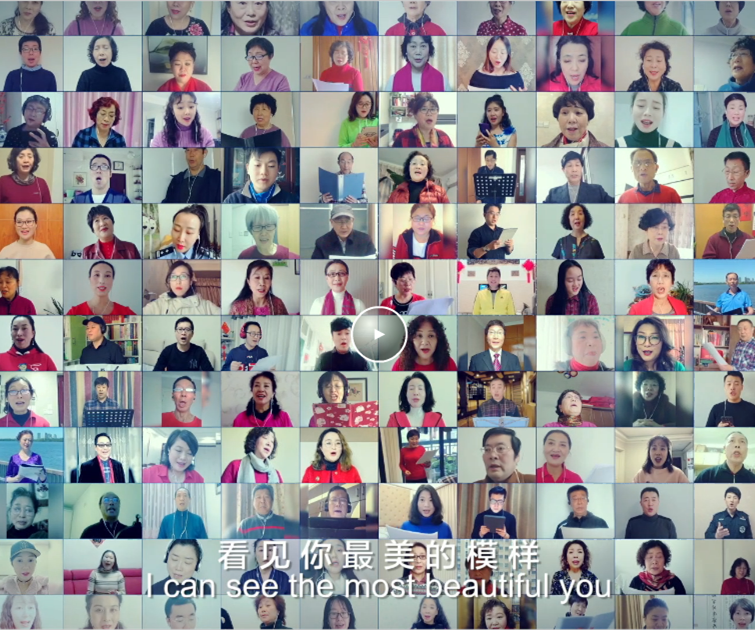Composer salutes medical staff with online chorus
- By Wu Jin
 0 Comment(s)
0 Comment(s) Print
Print E-mail China.org.cn, March 4, 2020
E-mail China.org.cn, March 4, 2020
The outbreak of the novel-coronavirus (COVID-19) has loomed largely across China during the Spring Festival holidays, which started on Jan.15, 2020. Since the city's complete lockdown on Jan. 23, thousands of medical staff have headed to the epicenter in Wuhan, the capital of Hubei province.
Risking cross-infection and giving up the opportunity to attend family reunions, an age-old tradition to celebrate the Lunar New Year, they headed against the travel rush to the frontline, where a considerable number of people have been endangered by the highly-infectious respiratory virus that, if not treated appropriately, can cause pulmonary failure. Having parted ways tearfully with their loved ones, they embarked on their rescue mission, dressed in tight protective suits that prevent them from drinking and eating at any time during their shifts in the wards.
As mentioned, to pay homage to their admirable courage, sacrifice, and devotion, Hao Yonggang, a retired composer in Shanghai, organized a chorus of 172 performers between ages 12-75. The entire process, from recruitment to video synthesis, was completed online and performed without accompaniment.
"When watching the news these days, I have been greatly moved by the highly-responsible spirit demonstrated by the medical staff working on the front line," Hao said.
"Therefore, I had an impulse to express my utmost gratitude to them, and I am sure I am not alone," he added.
According to Hao, the chorus's performances are hard for non-professionals because they require singers to have a good command of melodies, rhythms, crescendos, and decrescendos.
However, two days after Feb. 11, the day when the online recruitment was posted, the composer had received more than 6,000 followers and 470 applicants who sent him audio and video demos with the hope of joining the performance. Several overseas Chinese from Britain, Germany, and Australia also applied.
"I strongly recommend myself to the anti-epidemic chorus," said an applicant identified as Soprano Feng Ye on WeChat (a Chinese messaging app) , "I just want to do a tiny favor for the heroes and heroines working at the epicenter."
However, because of the difficult singing requirements, only half of the candidates qualified.
"Many candidates who failed to meet the qualification have also impressed us with their passion and enthusiasm. After reading their heart-melting messages, we have resolved to produce the virtual chorus that should not fall short of their expectations," Hao said.
Unlike the chorus on the spot, post-production of the virtual performance has to synthesize the audio and video clips from 172 participants into one holistic program, a complicated process Hao learned from a TED Talk made by American composer and conductor Eric Whitacre.
The sound synthesis took Zhou Lei, Xu Junjie, and two audio engineers seven days to complete, averagely half an hour on each demo, correcting tuning and duration. Meanwhile, Wu Guowei, Wu Xiang, and Zhu Qiuli, from Shanghai, Zhejiang, and Shanxi provinces, respectively, cooperated in putting the 172 video demos together into a coherent video. Hao said he admired their sweat and toil.
The song, entitled "Remember You Forever, and Follow Your Footstep to Be Brave," was released by the end of Feb. The lyrics show doctors and nurses being lauded for saving so many lives in the epicenter and for bringing hope to the country where magnolias are blossoming to announce the coming of spring.
"I added the last half of the sentence in the title," Hao revealed, "because, in addition to showing our gratitude, I hope we can all be as brave as the medical workers to help our country."





Go to Forum >>0 Comment(s)